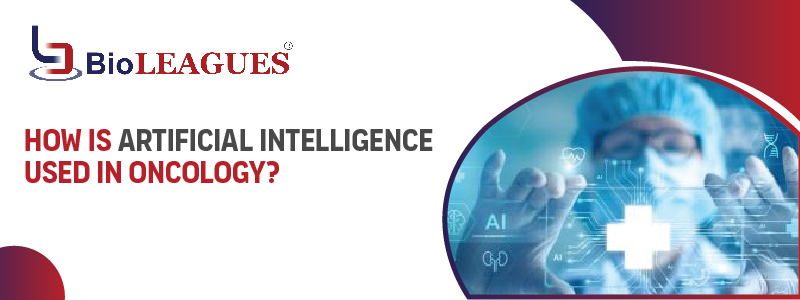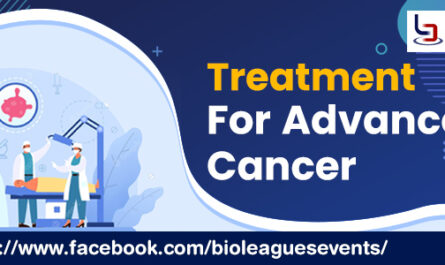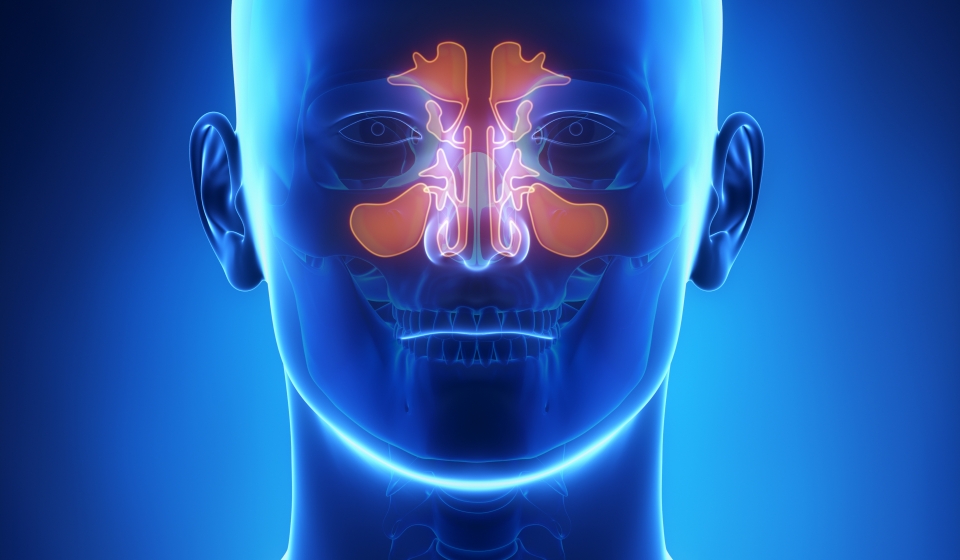Artificial intelligence is a revolutionary technology that can store huge amounts of data and analyse it in real-time. This ability gives AI prediction capabilities to understand cancer patient’s images, genomics and clinical data. Artificial intelligence in cancer is providing better patient outcomes due to such potential and effective functionality. These days AI is used in multiple ways to improve the field of oncology.
When artificial intelligence is used scientifically and ethically, it can advance the field of oncology. To understand the wider impact of this, participants should join dedicated events like conferences on oncology. This is a good way to upskill in AI and use it to heal cancer patients. Let’s understand the various applications of AI and how it is used in oncology.
Artificial Intelligence For Advancing Cancer Research
Artificial intelligence can store years of data without any fear of losing it. This ability helps researchers correlate information and dig deeper into extensive topics. Chatbots and AI assistants are widely used in laboratories and research papers. DNA and RNA sequencing can be very critical in cancer research to provide discoveries and effective innovations. Based on current and past data, AI can provide future predictions regarding such research-critical topics.
Generative AI can provide the necessary responses based on existing patterns. This ability helps researchers identify genetic and cell mutations in various types of cancer. Such precise data is the basis for stating facts in research papers, making them more valuable and credible. Due to such benefits, researchers can rely on artificial intelligence in oncology.
AI is revolutionising the oncology industry by enhancing human capabilities and reducing manual effort with extensive resources. By attending a conference on cancer you can understand these concepts in full detail. Indulge in various expert sessions like the artificial intelligence in oncology ppt, which provides latest insights.
Rapid and Accurate Detection of Cancer
AI softwares is helping pathology professionals to accurately detect various types of cancer. Prostate biopsy images can be easily analysed by AI, providing true detection of cancer stages. This helps in saving the time of doctors and radiologists to focus on more technical tasks requiring their judgement. AI imaging algorithms can understand the extent of breast cancer in mammography. With this correct screening and cancer diagnosis, doctors have a better chance to accelerate the treatment of cancer patients.
Moreover, cervical and prostate cancer screening is now possible with the new AI models. Scientists, engineers and doctors are working together to use AI algorithms in predicting long term effects of cancer. This can significantly reduce human error so, oncologists may avoid mistakes in recommending the precise cancer medicines. Additionally, by leveraging artificial intelligence in urology professionals can automate their tasks for quick responses and healing patients.
Advancing the Knowledge of Cancer Biology
Students, oncologists, urologists, pathologists, researchers, and scholars require the latest cancer knowledge to succeed in this profession. This is why a conference on artificial intelligence hosts valuable sessions on the application of AI in oncology. Although all types of information are available on search engines, too much data can be confusing. To resolve this problem, AI experts will show you how to use it to extract valuable data.
Research publications, pdf, and case study can provide new insights and clues. For advancing cancer treatment. By leveraging AI, oncology professionals can better understand the mutation in cells and genes. Large language models and AI tools are used to stimulate responses which provide a view for real-world exposure.
Effective Cancer Drug Discovery
AI is helping doctors and pathology professionals to understand how the body will react to certain drugs. This is why the conference on pathology hosts guest sessions, including artificial intelligence in pathology ppt. This ppt shows participants how AI capabilities can predict patient responses and help with new drug discovery. Such AI methods can help researchers to understand the biological response of various drugs.
For example, large language models can be trained with responses to figure out how to overcome immunotherapy challenges. AI can predict the behaviour of immune cells during the treatment of various tumours. This can help oncology professionals to provide drugs and treatments that are best suited for patients.
Services For Remote Cancer Patients
Cancer is spreading like a widespread plague due to lack of resources and decreasing immunity. However, the sad part is that not all cancer patients can travel to visit a physical hospital or book appointments with doctors. Artificial intelligence in oncology is like a boon for these patients to access expert advice from anywhere they want. AI tools and online assistants like ChatGPT can help in providing expert responses to patient queries.
Patients also have the option to use AI powered applications which monitor the success rate and also provide risk assessment. This can also be used to access tailored cancer information and provide the best possible treatment plan. Such a technology is highly necessary where there is a lack of oncology specialists. Patients can access extensive cancer resources and personalised plans without worrying about data leaks.
Analysing Big Data For Precision Treatment
In multiple laboratory trials it is seen that AI is able to accurately predict the responses of drug combinations on cancer growth. Physicians can use this large language model in precision oncology wherein information like tumour biomarkers, are used to guide treatment. Ai technology can provide real time insights of tumour responses during a surgery. This provides physicians and surgeons with the necessary information, becoming a guiding light in making decisions.
Artificial intelligence in pathology shows outcomes of survival rate for various breast cancer patients. This method can also be used to club the data of various cancer patients and derive valuable outcomes. This can help in analysing various case studies and concluding facts for best treatment approaches.
For example, neurological pathways and molecular data when combined can help in predicting outcomes for brain cancer patients. AI can understand CT scan images and analyse the precise location of the spreading tumour. This can help in speeding up patients’ recovery rates as physicians can improve clinical decision making.
Booking Doctors Appointments
Oncology professionals and doctors have a lot of important tasks that require their full attention. Due to this, it can be problematic to constantly talk to new patients and book appointments. AI chat assistants are solving this problem as they can easily book appointments and provide patients with appropriate schedules. Such personalised technology solutions are also beneficial in notifying patients about doctors’ availability, treatment plans, and offers.
There is no hassle to travel to the actual location as this can be from any place. Patients can ask their queries to these AI chatbots and get responses in real time. This way patients can know about available treatment plans, costs, arrange travel plans, and navigate through insurance covers. These chat assistants can help in sending reminders through notifications so patients can arrive for their slots.
Additionally, AI assistants can also provide emotional support during tough times by connecting patients to support groups and forums. Oncologists who are using this AI solution can excel in their profession. This is because unlike human assistants these chatbots can provide 24/7 support. Such practices improve patient engagement making them loyal and reliable.
Saving Time in Cancer Surveillance and Trials
Cancer studies involve theoretical and real-world data on cancer patients in a mass population. Such studies help physicians to derive conclusions and analyse facts. However, collecting this vast data and processing it manually can be a very time consuming and challenging task. Deploying AI automation and machine algorithms can help in speeding this process. This can help physicians to extract information from unstructured data and use it as scientific evidence.
Due to this massive advantage the conference on urology hosts guest sessions and workshops on mastering AI.This can help in understanding underlying risks for cancer through population analysis which result in early cancer detection. AI cancer surveillance can help in new diagnostic methods, treatments, risks and other factors that affect patient outcomes.
What The Future Holds for AI in Oncology?
AI offers multiple benefits and has wide implications in the field of oncology. Currently, it is used to develop effective drugs, conduct research, and make diagnoses. Experts believe that if used mindfully, AI can reshape the oncology industry. AI will be able to provide improved image analysis and generate reader-friendly reports. In the future, AI will be widely used to provide personalised treatment plans.
Additionally, precise disease detection will be possible due to AI-powered genomics. There can be virtual assistants for improved human-like emotional support to patients. AI development can significantly transform immunotherapy and track patient recovery through chemotherapy sessions.
To conclude
So, now you know how artificial intelligence is used in oncology. AI is changing the field by reducing manual work and the precious time of physicians and pathologists. It is important to remember that AI is a relatively new technology and still needs a lot of work. Experts suggest that AI and human collaboration are the keys to transforming the future of oncology. However, AI does have some limitations, and we must work on these developments to welcome a promising future.




